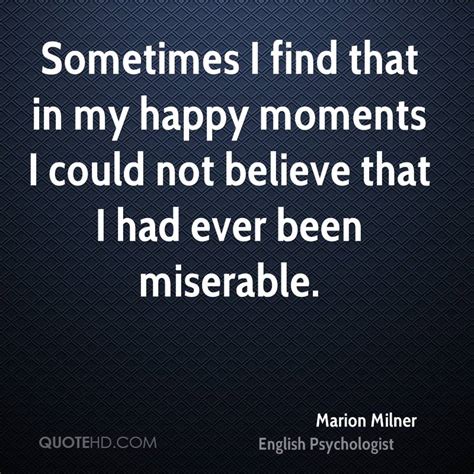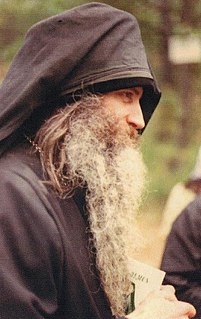A Quote by Marion Milner
Happiness not only needs no justification, but it is also the only final test of whether what I am doing is right for me. Only of course happiness is not the same as pleasure; it includes the pain of losing as well as the pleasure of finding.
Related Quotes
Pleasure is not the goal of man, but knowledge. Pleasure and happiness comes to an end. It is a mistake to suppose that pleasure is the goal. The cause of all the miseries we have in the world is that men foolishly think pleasure to be the ideal to strive for. After a time man finds that it is not happiness, but knowledge, towards which he is going, and that both pleasure and pain are great teachers.
Why do men learn through pain and suffering, and not through pleasure and happiness? Very simply, because pleasure and happiness accustom one to satisfaction with the things given in this world, whereas pain and suffering drive one to seek a more profound happiness beyond the limitations of this world.
Lenten practices of giving up pleasures are good reminders that the purpose of life is not pleasure. The purpose of life is to attain to perfect life, all truth and undying ecstatic love - which is the definition of God. In pursuing that goal we find happiness. Pleasure is not the purpose of anything; pleasure is a by-product resulting from doing something that is good. One of the best ways to get happiness and pleasure out of life is to ask ourselves, 'How can I please God?' and, 'Why am I not better?' It is the pleasure-seeker who is bored, for all pleasures diminish with repetition.
If there ever was a pursuit which stultified itself by its very conditions, it is the pursuit of pleasure as the all-sufficing end of life. Happiness cannot come to any man capable of enjoying true happiness unless it comes as the sequel to duty well and honestly done. To do that duty you need to have more than one trait. From the greatest to the smallest, happiness and usefulness are largely found in the same soul, and the joy of life is won in its deepest and truest sense only by those who have not shirked life's burdens.
When I look at what the world does and where people nowadays believe they can find happiness, I am not sure that that is true happiness. The happiness of these ordinary people seems to consist in slavishly imitating the majority, as if this were their only choice. And yet they all believe they are happy. I cannot decide whether that is happiness or not. Is there such a thing as happiness?





































